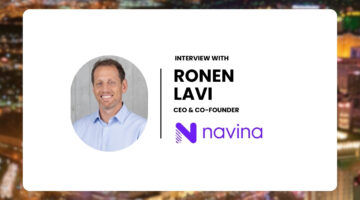
Once upon a time, reporters could definitively track down what drug patents would expire in a given year. Like lemmings, the medicines ran straight off the proverbial patent cliff. Generic manufacturers swooped in en masse and the inventor would lose up to 90 percent of its market share.
Today, drug patent expirations are complex and blurred.

Where AI Has The Most Potential For Clear ROI
Sezin Palmer talks about where AI has the most potential for ROI.
“I see a lot of articles talking about, ‘this patent for this biologic expires in 2020,'” said Janet Xiao, co-chair of the Global Life Sciences Group at Morrison Foerster. “That may not be the complete story.”
Big Pharma has become increasingly adept at extending patents through a variety of strategies. It’s an important part of the lifecycle management for the drug.
There are many ways to achieve a longer patent life, said Xiao in a phone interview, including through the use of second generation patents. These are filed later and last longer. The new IP could cover anything from manufacturing processes to a new drug formulation.
Eventually, the product itself loses value and the inventor moves on. The smoke and mirrors have helped maximize its blockbuster run.

How AI is Revolutionizing Value-Based Care Communication
How Navina helps providers win success with value-based care.
It has been happening for a while, but the situation is set to escalate with the industry’s awkward transition into generic biologic drugs.
Small molecule patents: Somewhat difficult to predict
Example number one: Pfizer’s blockbuster erectile dysfunction drug Viagra (sildenafil citrate), approved for sale in the United States in 1998. It’s main competitor, Eli Lilly’s Cialis (tadalafil), was approved five years later in 2003.
Cialis will lose its patent protection in 2017, but Viagra can keep powering until 2020. Why?
The first U.S. patent application for Viagra was filed in May 1994 and issued eight years later in 2002. Because the patent application was filed before June 8, 1995, it is what’s known as a “pre-GATT application,” Xiao explained in a recent phone interview.
GATT stands for the General Agreement on Tariffs and Trade. According to an IMS Global Services study performed shortly after it passed, some 42 percent of all commercially significant pharmaceuticals had their U.S., patents extended.
For Pfizer, its Viagra patent expiration was moved to whichever was longer; 17 years from the issue date (Oct. 2019) or 20 years from the first application filing (May 2014). The October best before date wins.
Pfizer then obtained an additional six months through an IP mechanism known as pediatric exclusivity. This extended the patent term out to April 2020.
If this sounds confusing, it gets much worse. To settle a 2013 patent infringement case, Pfizer signed an agreement with Teva Pharmaceuticals giving it exclusive rights to begin selling a generic viagra version in Dec. 2017.
Because Cialis is more or less substitutable, Pfizer’s brand name drug will take a hit when that goes off patent next year. It needed to do something. By limiting the license to one company, Pfizer can still control the prices somewhat and prevent competition from driving the price down dramatically.
Biologics patents: Near-impossible to predict
We’ve entered unchartered waters in the last few years, with the first of the major biologics potentially losing their patent protection.
But Big Pharma is not going down without a fight, and for every tactic available to small molecule manufacturers, there are many more ways to stall generic biologics, known as biosimilars.
“For biologics, it’s even more complex,” Xiao said. “By nature, they are very complex large molecules, so there are a lot of strategies that you can try to get patent protection.”
Xiao gave the example of an antibody drug. The inventor would have patented the original antibody very early on. But as the company advances the molecule, it may see an opportunity to patent a particular antibody sequence. Later on, the scientists could claim a small but meaningful therapeutic modification. They could file to protect the manufacturing process or claim rights to a second disease application.
If all of these patents are filed strategically, over time, the drug won’t lose exclusivity when the original formulation becomes a free-for-all.
“Savvy drug developers keep the patent filing strategy in mind as the research and development progress,” Xiao said. “They don’t just freeze at the time when the antibody was discovered, they constantly communicate with the research team and see what’s new, what’s the lead candidate, are there any patents that we can file on that? So it’s a dynamic process.”
In an email to MedCity News, Yali Friedman, founder of DrugPatentWatch.com, said many less tangible advantages also apply.
While these ‘evergreening’ strategies cannot entirely block generic entry, they can still provide an advantage for the branded firms. For example, enhanced formulations may be preferred by consumers and can therefore continue to drive branded sales after generic entry. Also, because the branded manufacturer has intelligence on prescription patterns which generic entrants do not, they may be able to use this knowledge to seek approvals for additional indications.
With so much complexity and so little guidance for the developers of biosimilars, the power is very much in the innovator’s court.
“In terms of whether Big Pharma takes advantage of the fact that it’s not clear, I think they certainly will try,” Xiao stated. “And it’s not really because the guidelines are unclear it’s just because the nature of the biologic is really complex.”
It’s also incredibly expensive to establish the manufacturing facilities and fine tune the science. To that end, many Big Pharma companies that are threatened by biosimilars are developing their own biologics knock-offs of competitor drugs. They have the resources and know-how after all.
Xiao pointed to Pfizer’s 2015 acquisition of Hospira as a prime example. Hospira specializes in biosimilar drugs. When the deal was announced, it was already selling the generic biologics overseas.
“The line between generic and innovator becomes fuzzier and fuzzier,” she said.
Photo: Kerrick, Getty Images






